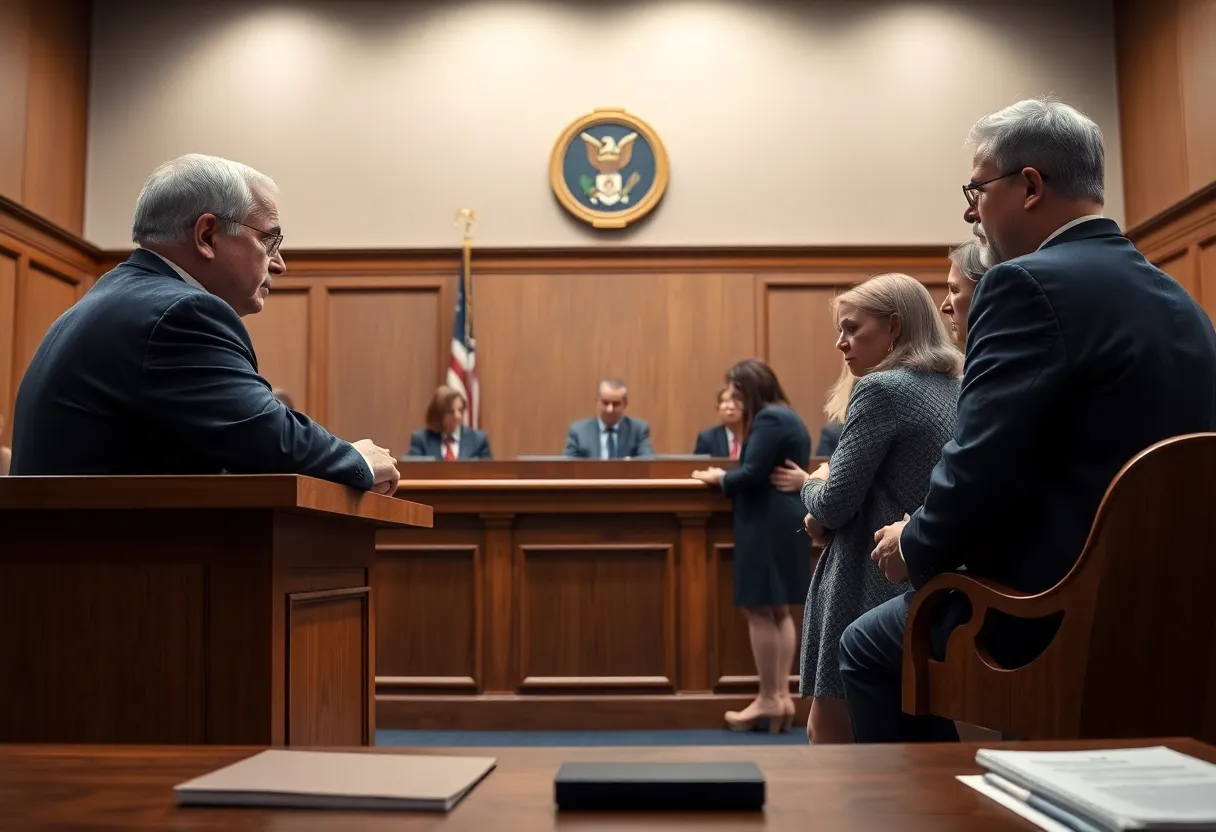News Summary
A Rock Hill judge has denied the release of Jimar Neely, who was found not guilty by reason of insanity for the 2019 killings of two men. The decision balances public safety concerns and mental health issues, as family members of the victims opposed Neely’s release, citing his drug history and potential risk to community safety.
Rock Hill Judge Denies Release for Jimar Neely, a Man Found Not Guilty by Reason of Insanity
In a ruling that has left many debating the balance between mental health and public safety, a judge in Rock Hill, South Carolina, has decided that Jimar Neely will not be released from the mental health facility where he has been confined since his trial. Neely, 34, was found not guilty by reason of insanity for the 2019 killings of two men, Tim Barber and Robbin Thompson, who were tragically shot while sitting in a truck near Rock Hill.
A Gruesome Incident
The shocking events unfolded when Neely, armed and troubled, opened fire on the pair, leading to their untimely deaths. The chaos escalated when Neely proceeded to shoot at deputies who arrived to manage the scene, indicating the level of distress he was experiencing at the time. Neely has claimed to have heard voices and believed there were “invisible people” trying to harm him, which played a significant role in the ruling of his mental state during the incident.
The Journey Through the Legal System
After being found not guilty by reason of insanity in 2022, Neely has been confined to a secure mental hospital for treatment of schizophrenia. Just recently, a hearing was conducted where officials from the South Carolina Department of Mental Health presented arguments supporting Neely’s readiness for a transition to a residential care center. They stated that he had made significant improvements during his treatment, leading to hopes for a less restricted living arrangement.
Concerns About Drug Use
However, not all parties were convinced that Neely was prepared to step back into society. Prosecutor Kevin Brackett strongly opposed the move for release, citing Neely’s history of illegal drug use, even while being treated in a controlled environment. This concern was heightened by positive drug tests Neely had throughout the time surrounding the tragic incident. Brackett raised alarms that Neely’s pattern of substance use makes him a potential risk for public safety if given access to the outside world.
Judge’s Decision Reflects Public Safety Concerns
The judge, Keith Kelly, ultimately sided with the prosecution’s concerns, pointing out that Neely’s continued drug use reflects a troubling degree of irresponsibility about his actions and mental health stability. He emphasized that releasing Neely to an outpatient center would likely give him easier access to illegal substances, which could trigger an unstable and unsafe situation for both Neely and the community.
Victims’ Families Oppose Release
In the courtroom, emotional pleas came from family members of Neely’s victims, who urged the judge to keep Neely confined. Their voices contributed to the atmosphere of apprehension surrounding the potential release, underscoring the lasting impact of the violent crimes on their lives and the community’s safety.
Looking Ahead
Following the ruling, Neely’s attorney expressed disappointment but acknowledged the judge’s authority in the matter. They indicated that Neely remains committed to his mental health journey, hoping there might be a chance for future reconsideration. However, under current South Carolina law, Neely will have to wait for another opportunity to petition for release, with no clear timeline for when that could occur.
As the legal proceedings linger, the case of Jimar Neely continues to stir emotions and raise questions about how mental health issues intersect with the justice system and public safety. With the community on edge and families impacted, it remains a poignant chapter in the ongoing dialogue about mental health in America.
Deeper Dive: News & Info About This Topic
HERE Resources
Rock Hill’s Latest: Legal Battles and Business Growth
Rock Hill Faces Potential Cuts to Mental Health Services for Students
Rock Hill Community Awaits Decision on Jimar Neely’s Future
Rock Hill Judge to Decide on Mental Health Case
Rock Hill Community Awaits Judge’s Verdict on Jimar Neely
Additional Resources
- WRIC: York County Judge Dismisses ACLU Lawsuit
- Google Search: ACLU lawsuit Virginia transgender student policies
- York Daily Record: Land Near Prospect Hill Cemetery Appeals
- Encyclopedia Britannica: Land Rezoning
- QC News: Dispute Over Silfab Solar Panel Plant
- Google News: Fort Mill Silfab solar panel plant dispute
- Charlotte Observer: York County School Policies
- Wikipedia: York County
- Herald Online: Local Crime News
- Google Scholar: Local Crime Virginia
Author: STAFF HERE ROCK HILL
The ROCK HILL STAFF WRITER represents the experienced team at HERERockHill.com, your go-to source for actionable local news and information in Rock Hill, York County, and beyond. Specializing in "news you can use," we cover essential topics like product reviews for personal and business needs, local business directories, politics, real estate trends, neighborhood insights, and state news affecting the area—with deep expertise drawn from years of dedicated reporting and strong community input, including local press releases and business updates. We deliver top reporting on high-value events such as the Come-See-Me Festival, Rock Hill Arts Festival, and motorsport events at the Rock Hill Velodrome. Our coverage extends to key organizations like the Rock Hill Chamber of Commerce and the Culture & Heritage Museums, plus leading businesses in manufacturing and technology that power the local economy such as 3D Systems and Comporium. As part of the broader HERE network, including HEREAiken.com, HEREBeaufort.com, HEREChapin.com, HERECharleston.com, HEREClinton.com, HEREColumbia.com, HEREGeorgetown.com, HEREGreenwood.com, HEREGreenville.com, HEREHiltonHead.com, HEREIrmo.com, HEREMyrtleBeach.com, HERENewberry.com, HERERockHill.com, and HERESpartanburg.com, we provide comprehensive, credible insights into South Carolina's dynamic landscape.





